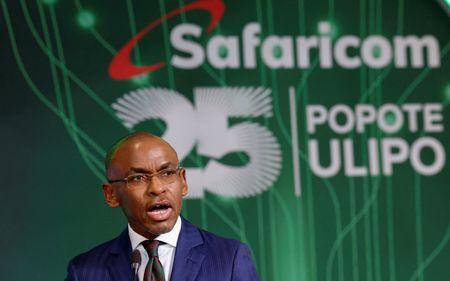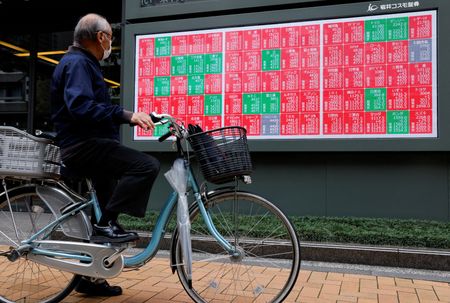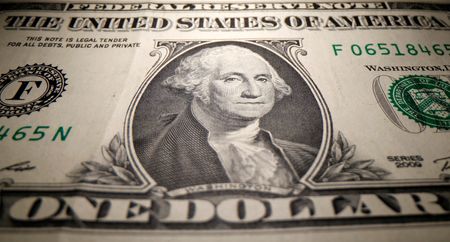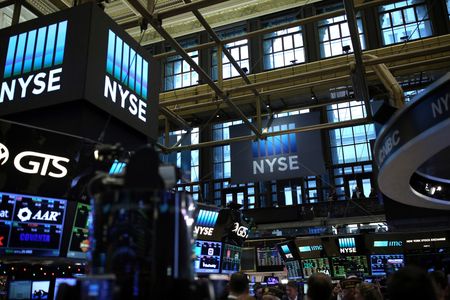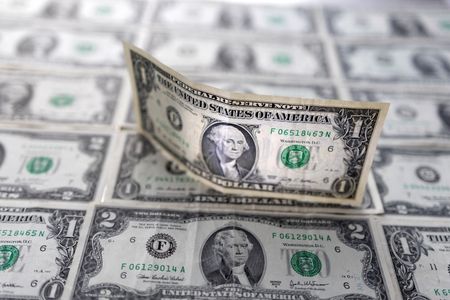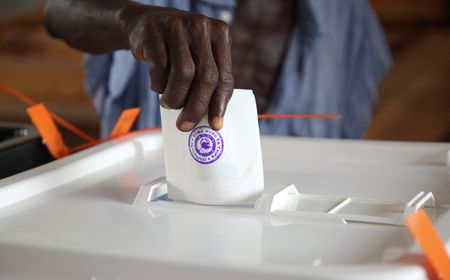By Katya Golubkova and Sam Li
TOKYO/BEIJING (Reuters) -Oil prices rose on Thursday as oversupply concerns eased, after closing at two-week lows in the prior session on weaker demand.
Brent crude futures were up 24 cents, or 0.38%, to $63.76 a barrel at 0753 GMT, while U.S. West Texas Intermediate futures were up 25 cents, or 0.42%, to $59.85.
Global oil prices fell a third straight month in October on fears of oversupply as the Organization of the Petroleum Exporting Countries and its allies increased output while production from non-OPEC producers is also still growing.
After U.S. and British sanctions on Russia’s biggest oil companies two weeks ago tempered the market’s aggressive bearish stance, however, there was a shift in oil price momentum at the end of October, Haitong Securities said.
OPEC+’s plan to pause further production increases in the first quarter of next year also partly eased worries about oversupply, Haitong Securities said.
Concern over weaker demand, though, still remains.
Year-to-date through November 4, global oil demand has risen 850,000 barrels per day, below growth of 900,000 bpd projected earlier by J.P. Morgan, the bank said in a client note.
“High-frequency indicators suggest that U.S. oil consumption remains subdued,” the note said, pointing to weak travel activity and lower container shipments.
In the previous session, oil prices fell after the U.S. Energy Information Administration said U.S. crude stocks rose by 5.2 million barrels to 421.2 million barrels last week, compared with expectations for a 603,000-barrel rise. [EIA/S]
“We think that downward pressure on oil prices will prevail, supporting our below-consensus forecast of $60 per barrel by end-25 and $50 per barrel by end-26,” Capital Economics said in a note.
Saudi Arabia, the world’s top oil exporter, sharply reduced the prices of its crude for Asian buyers in December, responding to a well-supplied market as OPEC+ producers ramp up production.
(Reporting by Katya Golubkova in Tokyo and Sam Li in Beijing; Editing by Tom Hogue and Christian Schmollinger)



